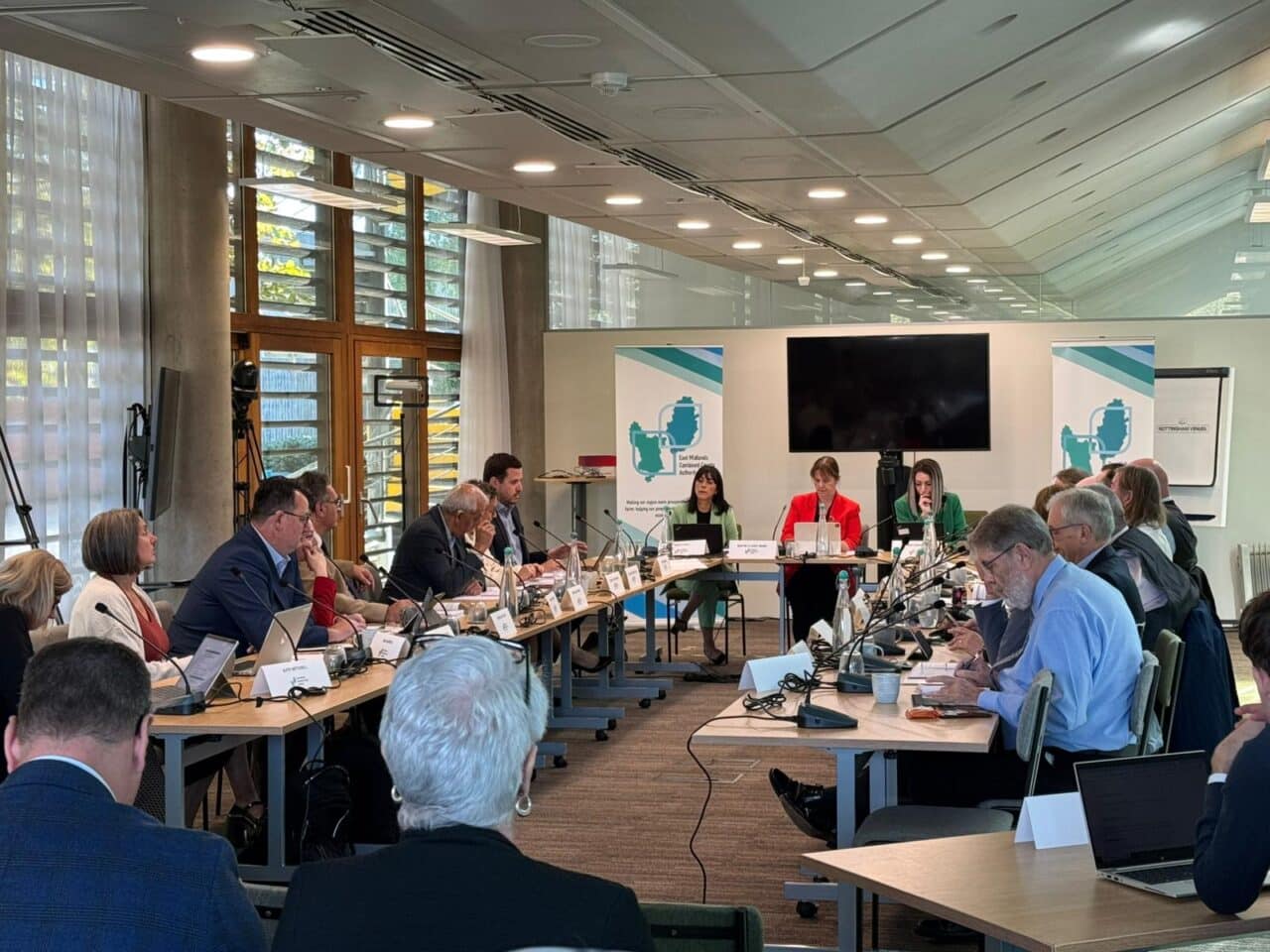
East Midlands Combined County Authority (EMCCA) Board has today welcomed the region’s first game-changing inclusive growth report, aimed at transforming the lives and livelihoods of people across the region.
The Mayor of the East Midlands, Claire Ward and the Royal Society for Arts, Manufactures and Commerce (RSA) last week (15 September) launched the Inclusive Growth Commission report, the first of its kind in the UK.
The East Midlands Inclusive Growth Commission was set up in November 2024 by East Midlands Combined County Authority and council leaders across the region, who appointed the RSA to run the high-profile commission.
The Commission’s final, ground-breaking recommendations is a major moment for the East Midlands. It is a chance for partners to work together to improve lives and jobs across one of the UK’s largest regions and to set an example others can follow.
The final report brings together new ideas for skills, health, housing and transport. It is designed to help people across Derby, Derbyshire, Nottingham and Nottinghamshire access good jobs, better opportunities, and develop stronger communities.
The report shows there’s a big chance for the East Midlands to grow. If the region attracts more investment, it could bring in £200 billion by 2035. Supporting the 18 most promising new industrial sites could help 30,000 low-paid workers earn around £6,700 more each year. Helping people build stronger networks and connections could add £1.4 billion in extra income for the poorest households over the next ten years. And if worker health problems are reduced, it could save up to £10 billion every year.
This is a plan built with and for the people of the East Midlands. It is also the first regional model of its kind in the UK – practical, scalable, and designed to influence national debates on growth, levelling up, and the future economy, leading to:
Getting on and getting up
At the heart of the plan is the UK’s first ‘Opportunity Escalator‘, setting out clear pathways for people to access opportunities and progress in work and life.
To make the Opportunity Escalator work, the Commission has set out flagship priorities to ensure every community benefits. These include:
Mayor of the East Midlands, Claire Ward said: “The East Midlands is a region of huge pride and ambition. We’ve always been a place that builds, creates and leads, from our world-class manufacturers to our thriving new industries in green energy, life sciences and the creative economy. However, too often the opportunities our people deserve aren’t spread fairly. That’s why I asked the Inclusive Growth Commission to look hard at the barriers and the solutions.
“The Commission’s final report makes clear the challenge is not aspiration as we have that in abundance, but the pathways that turn ambition into achievement. Too many young people face broken steps on the journey to a secure job, a decent home or affordable transport.”
“The Commission’s concept of an ‘opportunity escalator’ captures perfectly what we must build: a fair system of visible, achievable steps that works for everyone, wherever they start.
“This is a call to action for all of us – government, business, communities – to invest in our people and places. As Mayor, I am determined to lead that change. Together we must remove the barriers that hold people back, and make sure the East Midlands is a region where every young person has the chance not just to dream, but to thrive.”
This plan has today (22 September) gone to EMCCA Board, where they unanimously supported the plan. EMCCA Board is led by the Mayor of the East Midlands, Claire Ward and members include the four constituent authorities: Derbyshire County, Derby City, Nottingham City and Nottinghamshire County councils, as well as representatives from district and borough councils, local businesses, universities, colleges and third sector.
Published on: 22 September 2025
Categories: Economic Development, Housing, Net Zero, Skills and Employment, Transport, Visitor Economy